Skills from your Outward Bound course have a way of popping up in unexpected places in your life after an expedition. Since the beginning of the pandemic this year, many of our lives changed dramatically. In some ways, they’ve shifted to be more like an expedition than ever before.
Calling all Outward Bound alumni: have you been using the following skills you learned from your expedition?
Skill #1: Dealing With the Unexpected
On an expedition, the unexpected is part of what gives you a sense of thrill and adventure. The moment could be when the rain stops and a double rainbow arcs across the lake in front of your campsite, or when what you thought was a brown rock stands up out of the water and reveals itself as a bull moose. There are also unexpected, and uncontrollable, challenges, like when all of the designated campsites are occupied, or a storm keeps you from traveling for three days. Many of our expectations for how our front-country lives function have been changed or interrupted this year. Adjusting to the unexpected is a muscle we’ve all been using. Just like on an expedition, we find a way through.
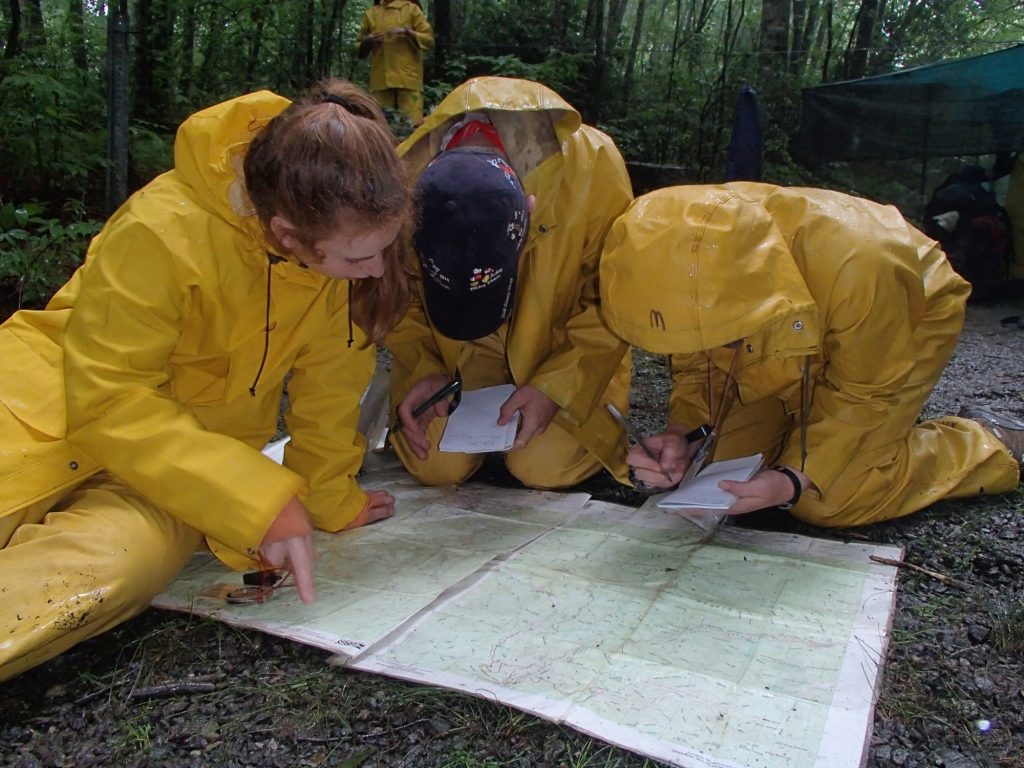
Adjusting to the unexpected is a muscle we’ve all been using the past few months. Just like on an expedition, we find a way through.
Skill #2: Conserving Toilet Paper
If you thought Outward Bound was the only time in your life you’d pay attention to how much toilet paper you used, you were wrong. Once again, running low on something can’t necessarily be solved by a simple trip to the nearest store. That familiar feeling of making do with what you’ve got comes creeping back in. From toilet paper and cleaning supplies to vitamins, flour, yeast, meat, lumber, chicken feed and now canning supplies, we follow a seasonal arc of supply chain disruptions and shortages. Whether it’s someone taking more than they need, or just an increase in demand, many of us are remembering that we can make do with less.
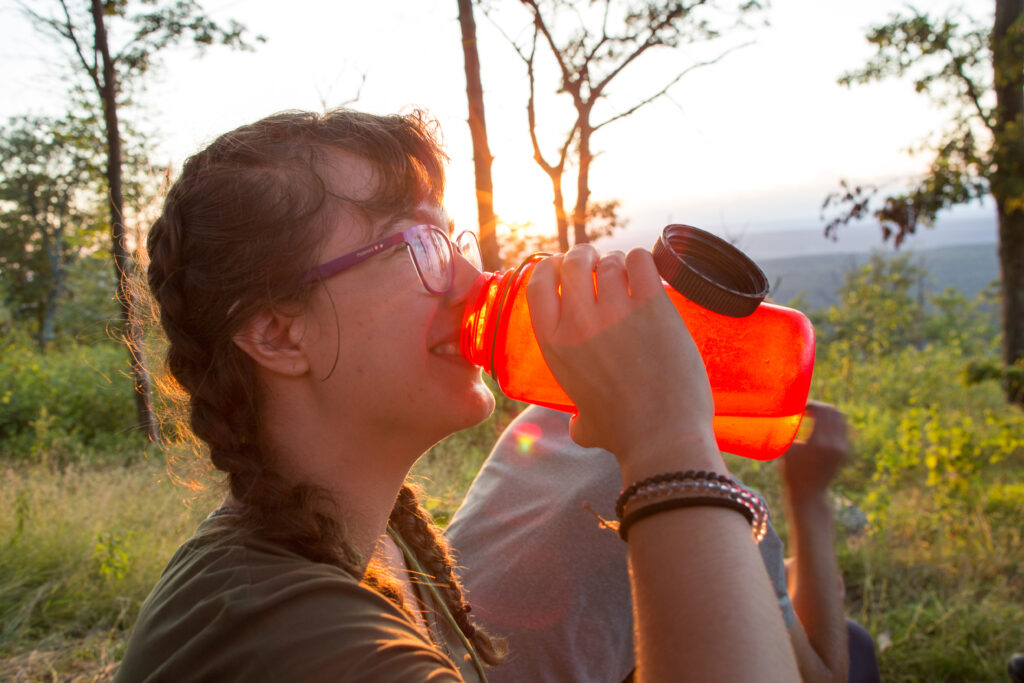
Whether it’s someone taking more than they need, or just an increase in demand, many of us are remembering that we can make do with less.
Skill #3: Spending Time Alone
Your Solo experience may have been several hours or several days, but for some of us, the last six months have been the loneliest of our lives. Whether or not we’re quarantined alone, most of us have had to cut back on social time with friends and family. Just as on Solo, we’ve had to learn to be comfortable with ourselves, a skill many of us otherwise rarely practice. However, unlike Solo, this time is not the same opportunity opened for reflection—a space held and facilitated carefully by Instructors. It’s our regular lives, plus new stresses around health, employment, rent, childcare and a myriad of other challenges that build on each other. Many of us will recognize, looking back on this experience, that we did adapt and learn new ways of being comfortable with ourselves, and that we were more grateful and intentional with our relationships afterward. Just like Solo.
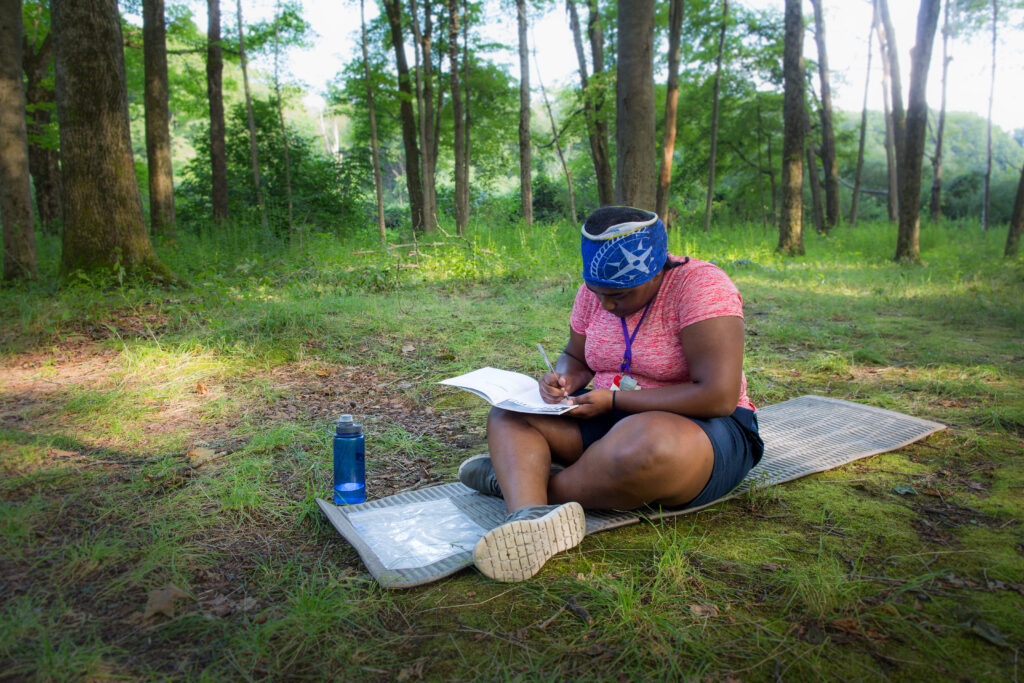
Just as on Solo, during the past months, we’ve had to learn to be comfortable with ourselves, a skill many of us otherwise rarely practice. Photo by Ryan Harris.
Skill #4: Spending All Your Time With the Same People
Many of us have found ourselves spending record amounts of time with our partners, families or roommates. Just as on an expedition, eventually people encounter conflict when every waking and sleeping moment is spent together. Remember to use those communication tools, give appreciations often, and give each other whatever space you can.
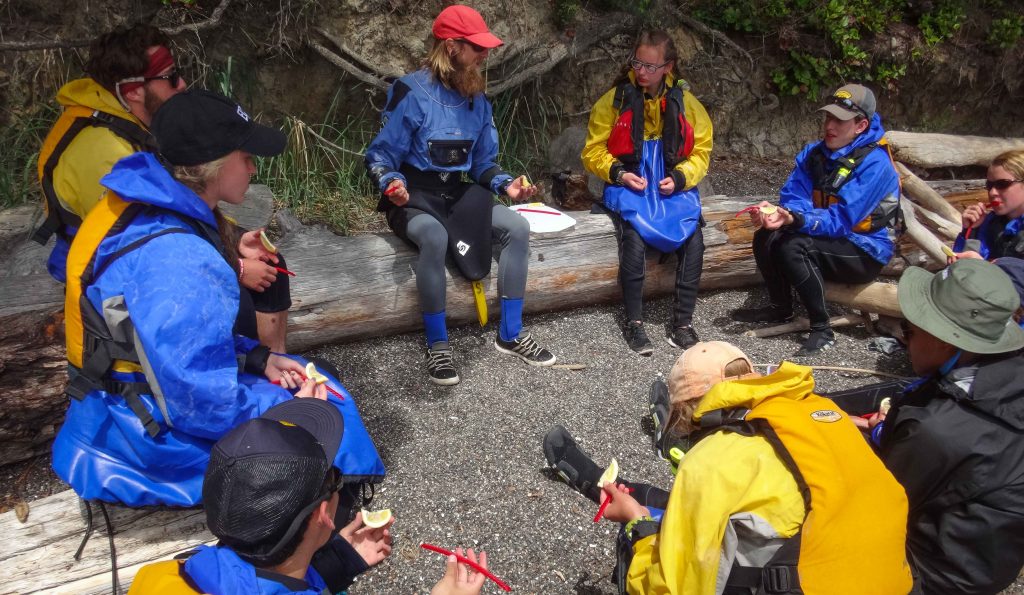
Remember to use the communication tools you learned on your course, give appreciations often, and give each other whatever space you can.
Skill #5: Getting Creative With Meals
Did you invent a new food on your expedition? Were mashed potato flakes in granola or beans in macaroni much better than you expected? That may have been the hunger. Food takes on new importance when you’re traveling hard through the wilderness for miles each day. An expedition not only makes many things taste delicious, but it also gives many students a chance to cook when they don’t usually do so. Longer expeditions inspire creativity to avoid eating the same meal repeatedly. Sometimes limited ingredients lead to new discoveries or happy mistakes. In the past few months, many of us have taken up cooking both as a hobby and due to the closure of many restaurants and eating establishments. While we may not have the same incentive due to the number of calories burned during the day, cooking can be a way to take proper time to care for ourselves and to learn new skills.
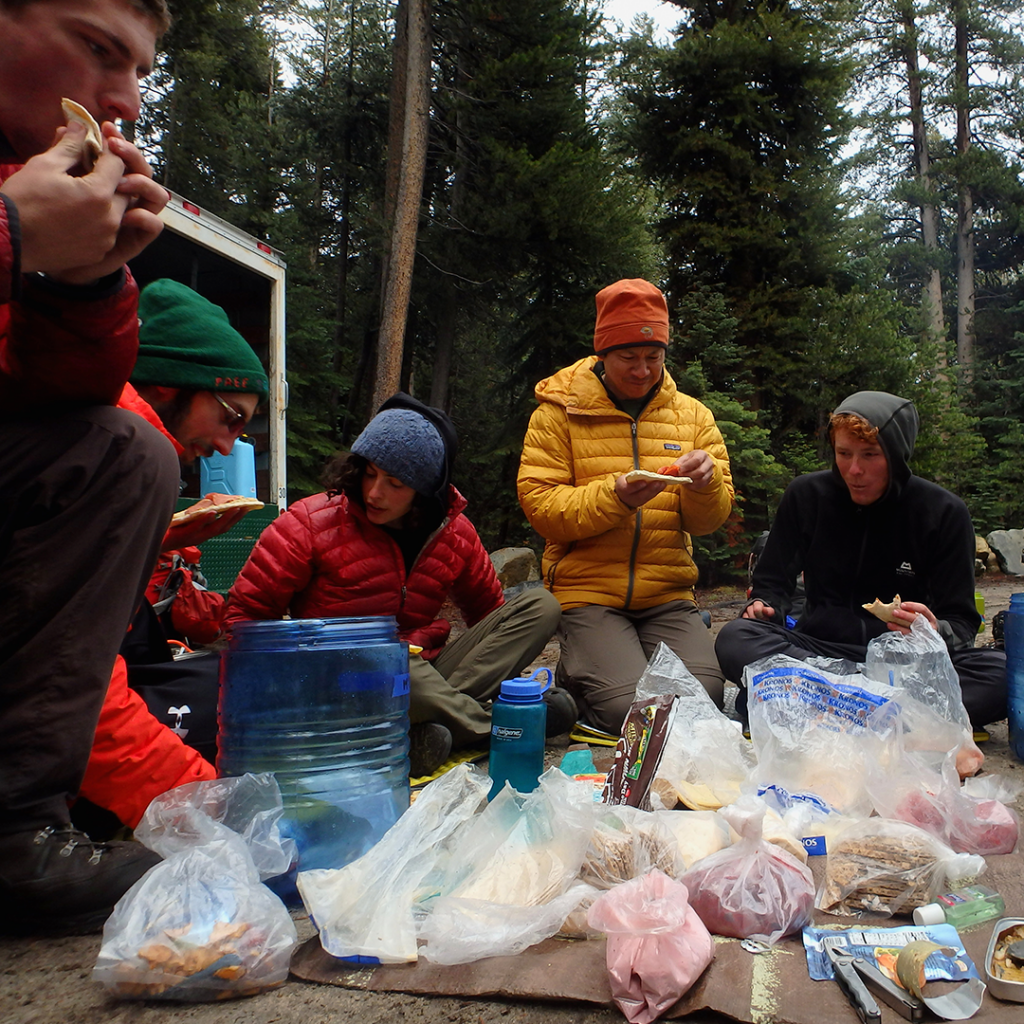
Cooking can be a way to take the proper time to care for ourselves and to learn new skills.
Skill #6: Making Your Own Entertainment
Whether it was telling jokes, singing songs, making up stories or playing word games, on an expedition, all our entertainment has to come from within the group. Laughter and having fun are a necessity. Without TV, the internet, phones and social media, we had to re-discover how to have a good time. Now we’re well-equipped with online entertainment, but many of our forms of in-person entertainment are on hold for public health reasons. Instead, we stay at home, and sooner or later, temporarily reach our capacity for online entertainment.
Maybe we’ve turned to each other and started telling jokes again. On an expedition, jokes are often most important on rainy days when we feel miserable and are constantly reminded by the rain dripping off our noses that we aren’t in control. As the weather and seasons change now, I’m reminded that the realm I have control over is very small. Humor remains a valuable tool for coping with that feeling.
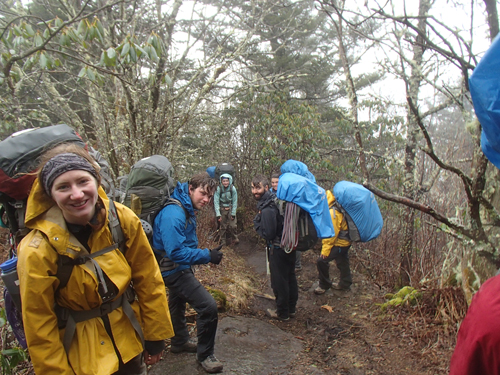
Western North Carolina gets over 50 inches of rain annually, but hiking in the rain can be fun when your crew keeps you laughing!
Skills for Life
For me, the feeling that an Outward Bound course prepares you not for future expeditions, but for your life, has never held more truth. I’m grateful for both my experiences as a student and as an Instructor to guide me through these uncharted waters. From one Outward Bounder to another—be safe out there, and keep the toilet paper dry!
About the Author
Renee Igo was an Outward Bound student at age 15, and has been instructing wilderness expeditions for the Voyageur Outward Bound School for the past eight years. When not instructing, she holds a variety of other teaching positions and raises sheep in Maine.




